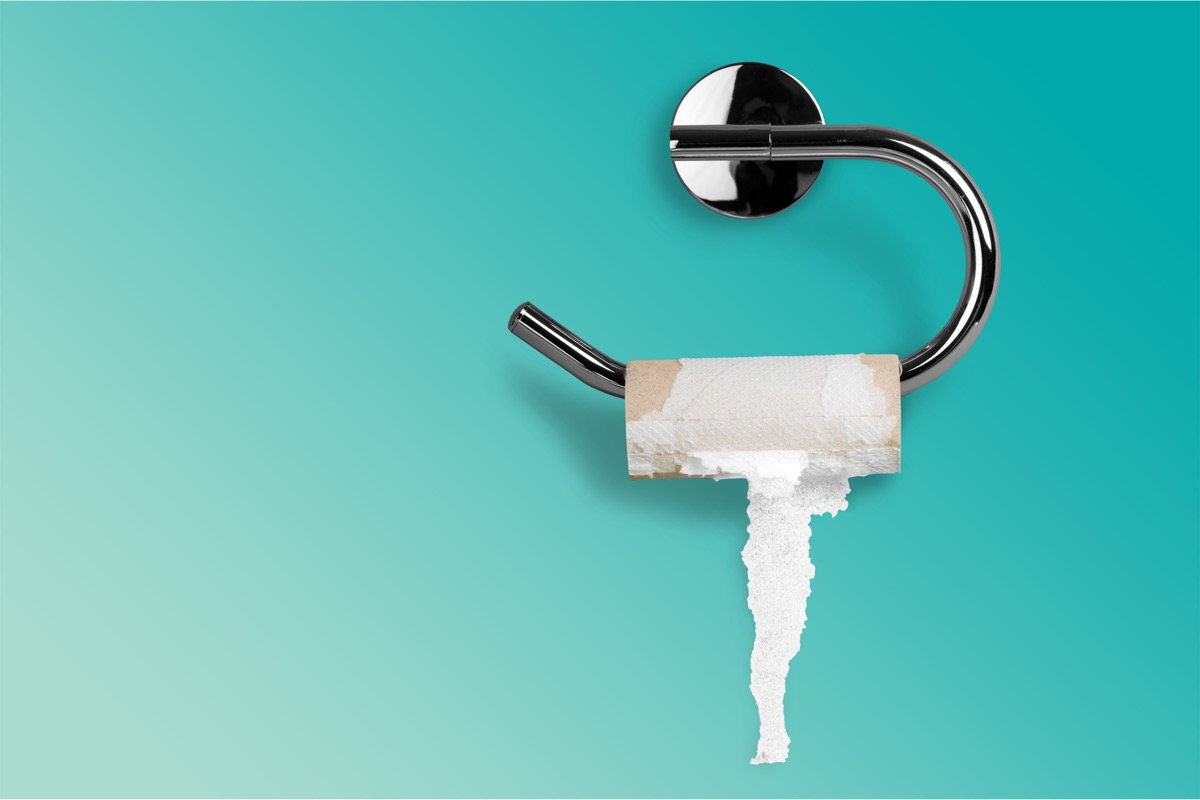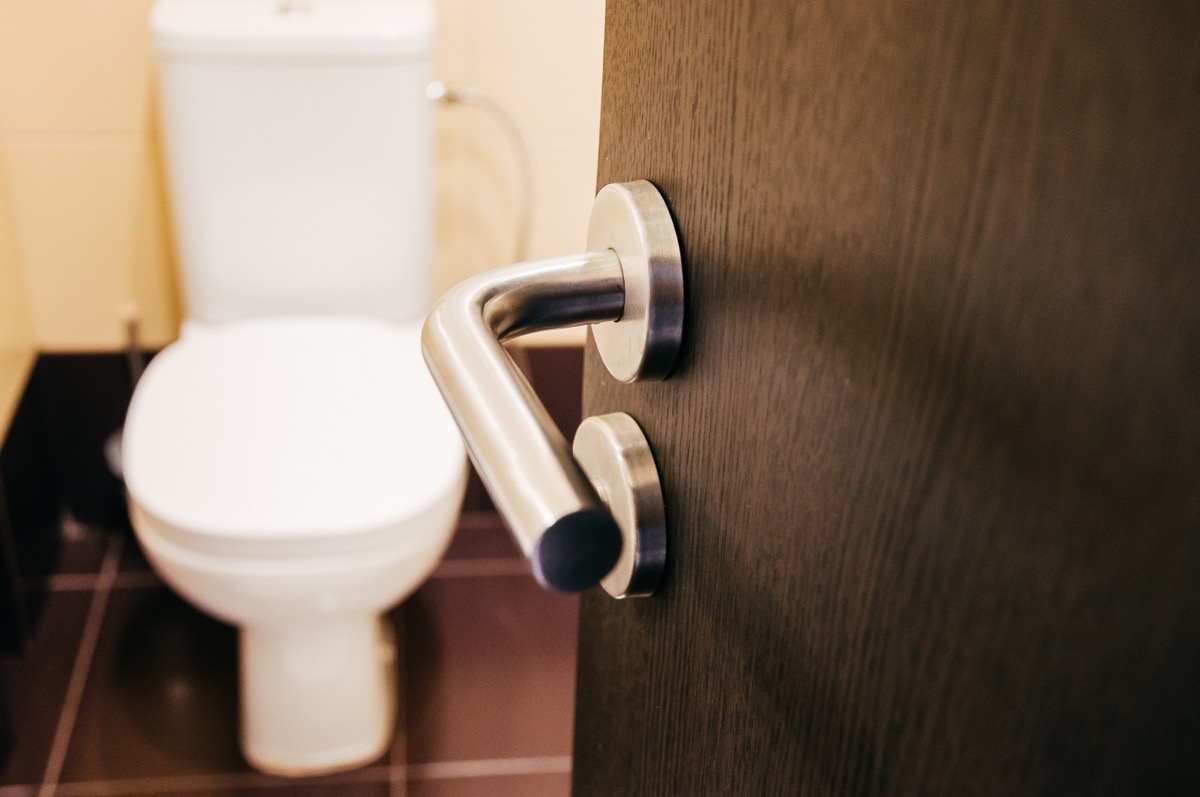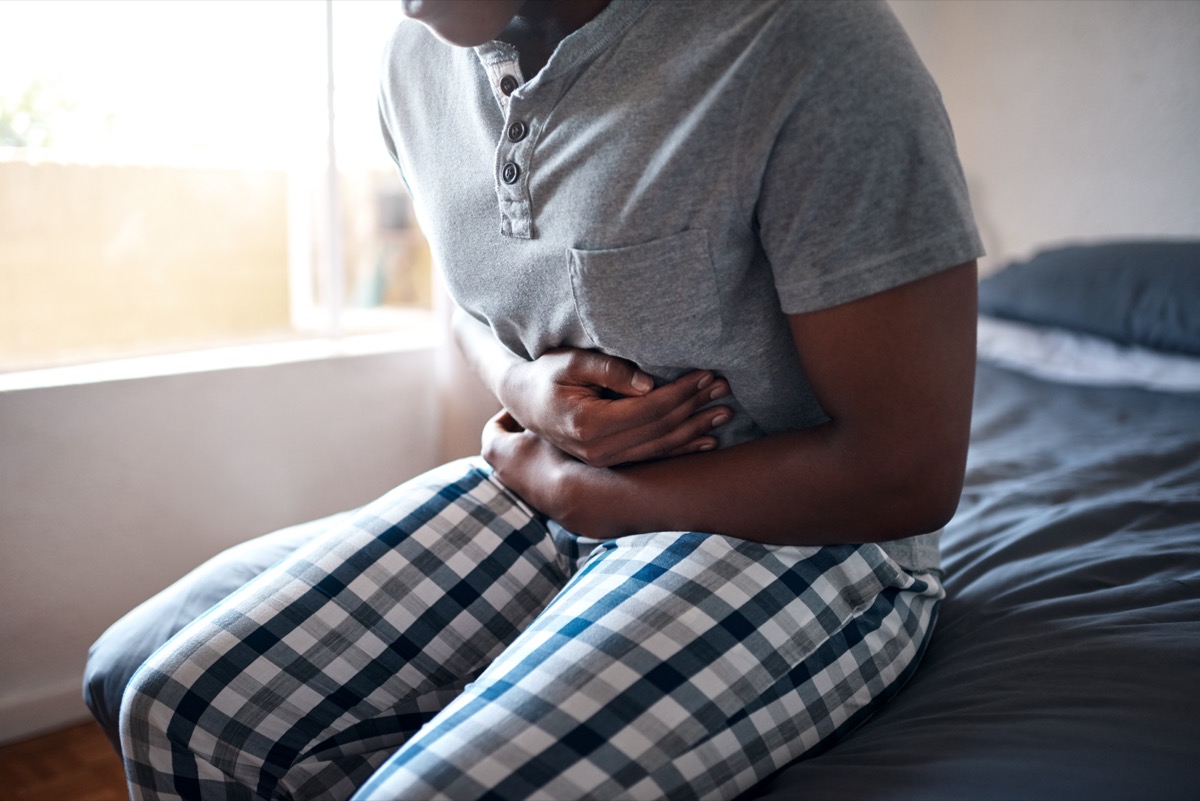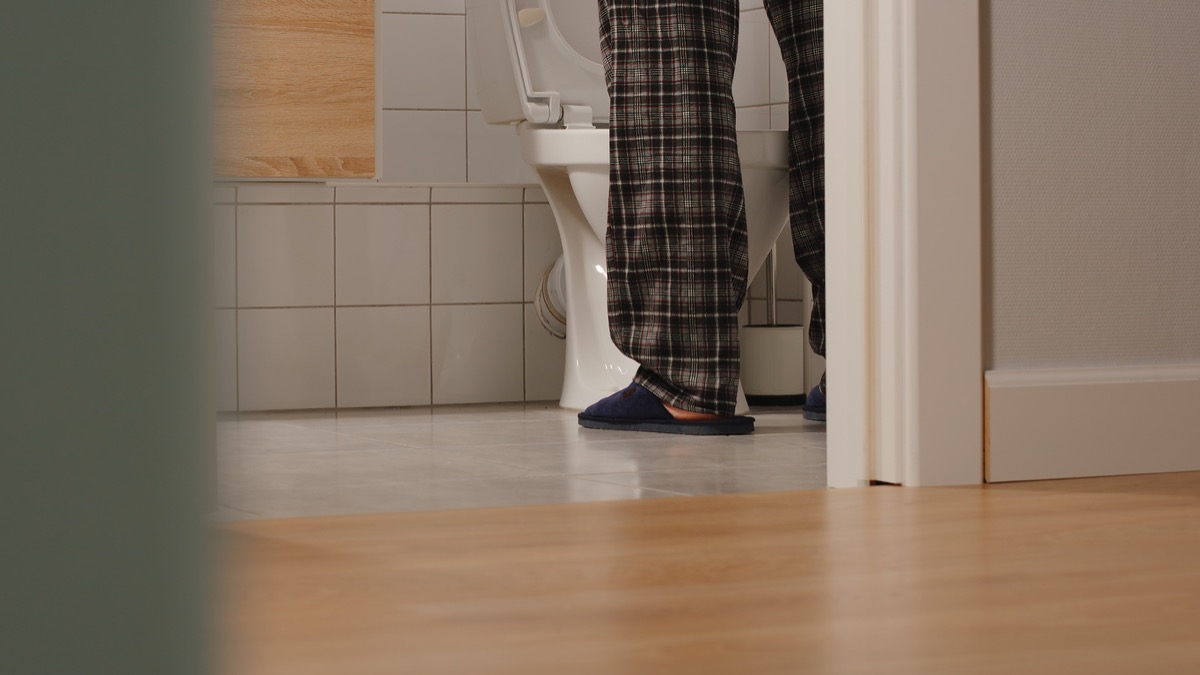Read the original article on Best Life. A normal, healthy individual will usually urinate around six or seven times a day, although this varies with age, medical conditions, and other factors, according to experts. Peeing too often is always worth keeping an eye on–it can be a sign of overhydrating, diabetes, or a urinary tract infection. And for other symptoms to be aware of, here are 40 Sneaky Signs You’re Unhealthier Than You May Think. The new research comes from the National Institute of Health (NIH), which funded a study involving both mice and human patients and published the results in the journal Nature on Oct. 19. Researchers identified a gene, called PIEZO2, which may be responsible for that familiar “urge” that comes with a full bladder. And for another strange genetic condition, find out about The Rare Gene Mutation That Makes You Immune to This Awful Odor. PIEZO2 appears to work with at least two types of cells in the body to sense when the bladder needs to be emptied. The gene contains instructions for producing proteins that are activated in response to certain cells in the body being stretched or squeezed–for example, when the bladder fills up.ae0fcc31ae342fd3a1346ebb1f342fcb However, the researchers found that certain people are born with a genetic deficiency in this gene, meaning they have trouble sensing when their bladder is filling up and therefore, feel less of an urge to go to the bathroom. Further experiments on the mice suggested that as well as gauging expansion, the gene also plays a critical secondary role in this process, sparking neurons to relay tension signals to the wider nervous system and putting the body on “standby” to take action. And for more health concerns regarding your bathroom behavior, here’s What Happens to Your Body When You Don’t Change Your Underwear. The researchers examined medical records, did ultrasound scans, gave out questionnaires, and conducted detailed interviews with 12 patients between the ages of 5 and 43 born with disabling mutations in their PIEZO2 genes. Nearly all the patients said they could go an entire day without feeling the need to urinate. On top of that, 25 percent reported only peeing once or twice a day, and over 40 percent said that when they finally do feel an urge to go, it comes on abruptly. Nearly 60 percent of the patients said they had trouble urinating, sometimes needing to press on their lower abdomen in order to go. And for other signs of issues with your abdominal area, This Is Everything Your Stomach Is Trying to Tell You About Your Health.



